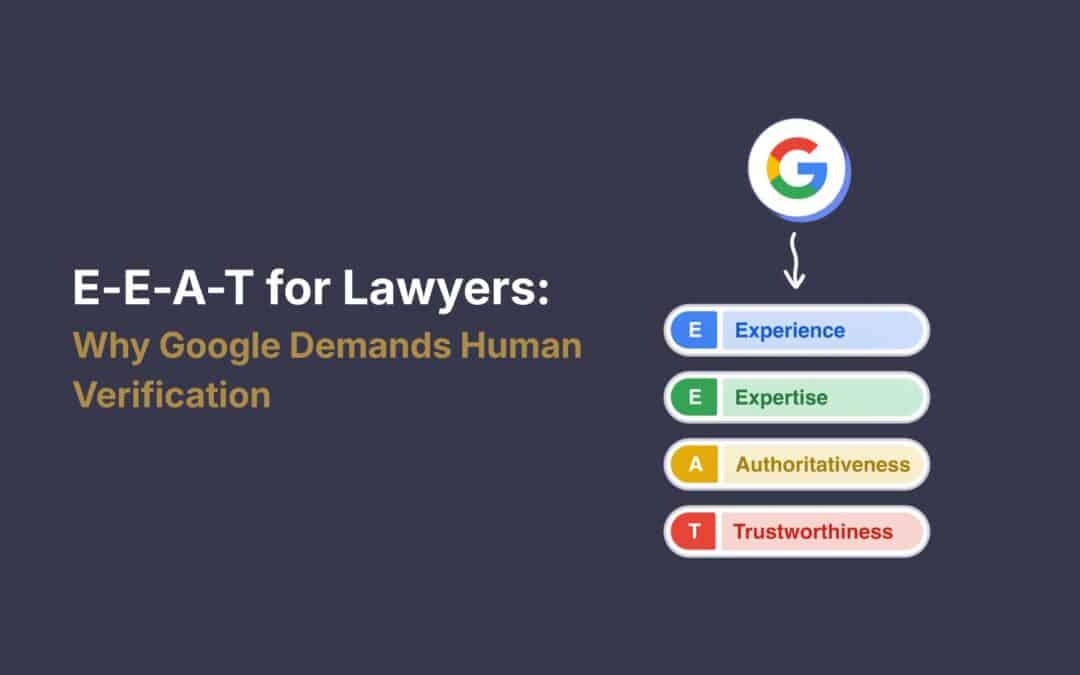For decades, the foundation of a law firm’s online success rested on a predictable SEO playbook: identify relevant keywords, create a page for each, and build a network of backlinks to signal authority. This strategy, while effective for a time, is now facing a seismic shift. The rise of AI-powered search engines and large language models (LLMs) is fundamentally transforming how potential clients discover information, and for law firms, this means the rules of law firm SEO are changing as AI search transforms how users discover information online. This is no longer a theoretical debate about the future; it is a measurable reality that requires immediate action.
The New Reality: AI Search is Not Traditional Search
According to a 2025 Previsible AI Traffic Report, the conversation about AI changing search is over. The report analysed LLM-driven traffic and found a 527% increase in total AI-referred sessions between January and May 2025. This dramatic growth shows that AI platforms like ChatGPT, Perplexity, Copilot, and Gemini are already influencing how users find and engage with websites, particularly in high-consultative industries like the legal sector.
This shift is so significant that it’s being compared to the moment mobile-first design changed ranking factors overnight. The key difference, however, is speed. AI search is moving faster than any previous evolution in the digital landscape. And unlike traditional search engines that rely on a slow, patient cycle of crawling, indexing, and ranking, LLMs surface useful content immediately if it helps answer a user’s question.
Shifting Your Law Firm’s SEO Mindset: From Ranking to Being Selected
This new reality requires a complete overhaul of the traditional SEO mindset. It’s no longer about simply getting your page to the top of Google’s search results for a single keyword. It’s about being the answer a model chooses to surface.
From Keywords to Intent
Traditional SEO focused on keyword optimisation, but AI-powered search engines prioritise understanding the user’s intent behind a query. This means your content for a law firm in Australia needs to move beyond simply including phrases like “family law solicitor” and instead focus on comprehensively answering the questions and fulfilling the needs of a potential client, such as “what should I ask a lawyer before signing this contract?”. The content that will succeed is that which uses natural language processing to understand the context of a search and provide genuinely helpful, comprehensive information.
The Rise of Zero-Click Searches and AEO
AI-driven search results, such as Google’s AI Overview, often provide a concise answer directly on the search results page, eliminating the need for a user to click through to a website. This “zero-click” trend means that your law firm’s SEO strategy must adapt. Answer Engine Optimization (AEO) is emerging as a critical strategy to ensure your content is structured so that it can be easily understood and displayed by AI-powered search engines, making it the answer itself.
Content Structure for AI
AI models favour content that is clean, clear, and structured for scannability. Think bullet points, tight intros, and comprehensive FAQ sections. This is a significant evolution from traditional featured snippets; content now needs to perform inside a model’s response, not just on a search results page. The goal is to make your content easy for AI to retrieve, cite, and present to a user.
Optimising for “Chunk-Level” Relevance
AI search platforms process and evaluate content by weighing authority signals differently than traditional search engines. They generate comprehensive answers by creating “sub-queries” and focusing on the relevance of individual content chunks or passages, not just the entire page. This means that each section of your content needs to be semantically tight and independently valuable, making it easier for AI to retrieve and cite.
Actionable Strategies for Law Firm SEO in an AI-Driven World
To thrive in this new environment, your law firm needs to implement a strategic framework that accounts for AI’s unique behaviours and expectations.
Create High-Quality, Trustworthy Content
In high-consultative industries like the legal sector, people turn to AI for complex, trust-heavy questions. AI algorithms are designed to identify and prioritise content that is authoritative, trustworthy, and well-researched. For your law firm, this means creating informative, engaging content that establishes your expertise and builds trust, making your firm the go-to source for the kind of questions these models are built to answer.
Build Comprehensive Topic Clusters
To be an authoritative source, your content needs to be comprehensive. Aleyda Solis, an international SEO consultant, highlights the importance of topic clusters in the new AI search landscape. Your law firm should develop topic clusters that cover every angle and subtopic relevant to your practice areas. This structuring ensures each section is self-contained and semantically rich, increasing the likelihood of it being cited in AI-generated answers.
Prioritise Technical SEO for AI Crawlability
The technical fundamentals of your website are more critical than ever. AI bots and traditional search engines may have different crawling behaviours. Ensuring your site is easily crawlable and indexable by AI bots, especially by minimising reliance on client-side JavaScript, is essential for maintaining visibility. Regularly auditing your site to confirm AI bots can access all key content is a non-negotiable step.
Increase Authority Through Citations and Community Mentions
Authority signals are evolving. While backlinks remain important, AI search is placing a pivotal role on mentions, citations, and entity-based trust. Law firms should invest in digital PR, community initiatives, and creating original research or expert-driven resources that are highly citable. Being referenced and mentioned by trusted third-party sources and communities now plays a key role in AI search rankings.
Measure What Matters
The old playbook of measuring success solely by organic traffic and rankings is no longer sufficient. You need to move beyond traffic as the sole metric. Aleyda Solis suggests tracking share of voice, mentions, and brand sentiment in AI search results. Benchmarking against competitors and focusing on long-term visibility and authority will be the new measure of success in this AI-driven era.
The Critical Importance of Being AI-Ready Across the Entire Funnel
This new approach isn’t limited to a law firm’s blog. AI conversations can surface content from across the entire website, including product pages, help docs, case studies, and knowledge bases. Your entire site needs to be “conversation-ready”. The old mindset of “publish, wait, and hope Google figures it out” is now dangerously outdated. We’ve entered the “instant surfacing era” of SEO, where content can be discovered before it even ranks.
Conclusion
For a law firm, ignoring the transformative power of AI in search is a risky position. The shift from traditional SEO to AI-driven discovery is not a distant conversation; it is a measurable reality that is already impacting your online visibility and traffic. The firms that embrace this change and adapt their strategies now will be the ones that build a lasting competitive edge. It’s no longer just about ranking in Google; it’s about earning visibility in AI assistants, summaries, and conversational UIs.
Is your law firm’s website ready for the AI-driven future? Don’t get left behind. Contact Lift Legal Marketing today for a comprehensive audit of your current visibility and a strategic plan to build an AI-ready SEO strategy that delivers results.











